Perhaps Fonkoze’s strongest literacy program right now is one in Baptiste, a coffee-growing region in the mountains along the border in central Haiti. The program serves a collective of five agricultural cooperatives that emphasize coffee farming.
I went to Baptiste recently to talk with program participants, literacy teachers, and the program’s coordinator, Emile Mesidor. It was a quick trip, a single day of conversation sandwiched between two full days of travel from Ka Glo to Baptiste and back, but it was well worth the trouble.
Most Americans have probably never seen coffee grow. I was in Baptiste during the early part of the coffee harvest, so the beans were everywhere. Here are photos of the beans on the bush.
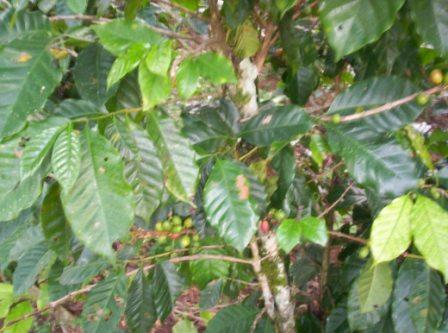
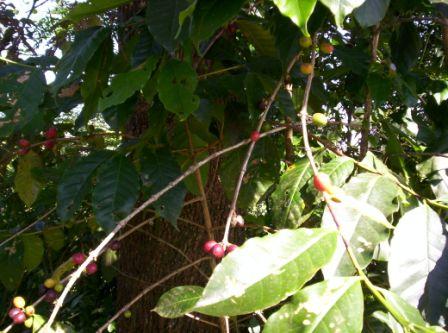
Here is a merchant’s display of unprocessed coffee beans. When they’re ripe, their outer shell is red.
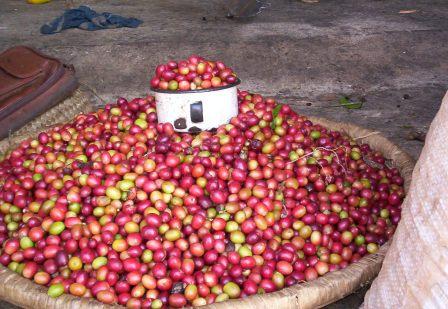
The cooperatives buy the beans directly from farmers. The beans are stored in a largest concrete tank until they are ready to undergo a fermentation process that prepares them for shelling.
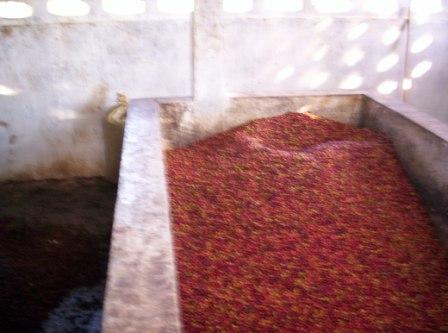
Here’s a handcrank apparatus that removes the outer shell.
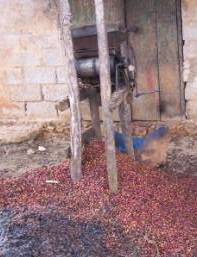
The shelled beans are set in the sun to dry.
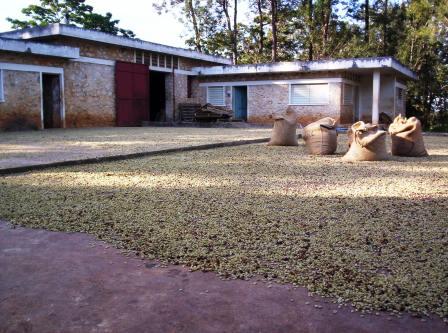
Because I just had a day to spend in Baptiste, Emile decided to invite all the literacy teachers to a single meeting, a question and answer session that would enable me to hear their views and to learn what questions they had for the Port au Prince literacy team.
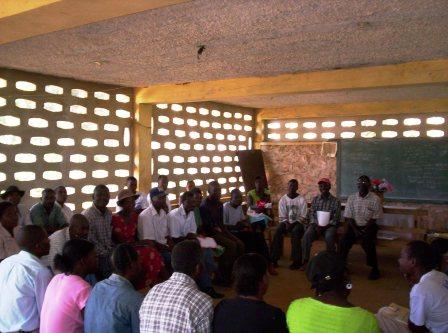
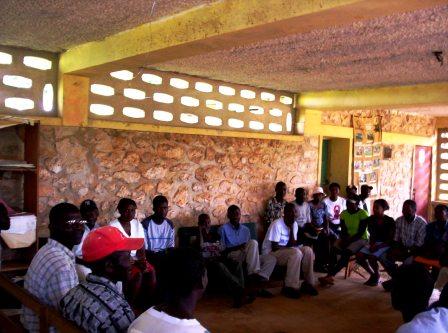
Then in the afternoon Emile and I went hiking around the area to visit centers. This can involve a lot of walking, even just to visit some of the closer centers. We decided to first visit one that was about 25 minutes away along paths through the coffee groves. It was a beautiful walk.
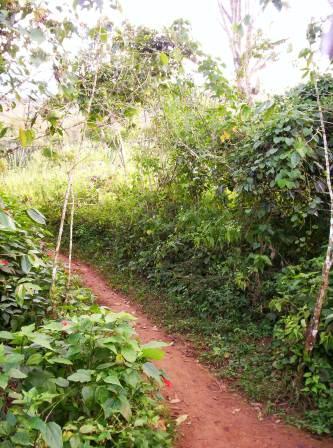
This is Emile, walking ahead of me.
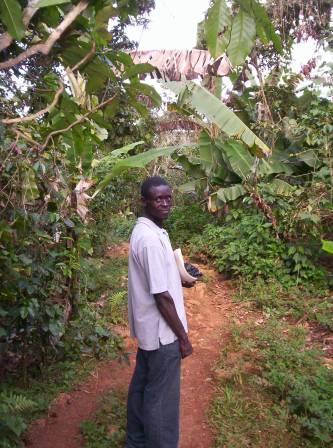
Visits can be frustrating. When we got to the center, we discovered that they had changed their meeting schedule. We had just missed that day’s meeting. We returned to the center of Baptiste and found a working center in a Baptist church.
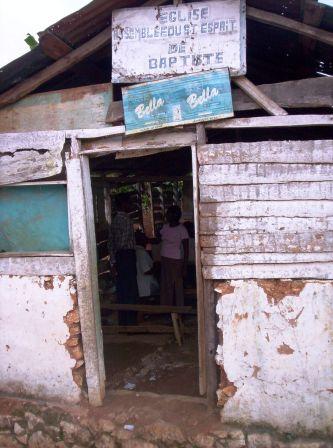
We watched for awhile. The center was unusual because, characteristically for Fonkoze but not for its program in Baptiste, all its members are women. The center offers a post-literacy class in basic business skills. The class so appeals to those who hear about it that a number of non-participants decided to sit in. We were told that they attend faithfully and participate well. All of the additional participants are men.
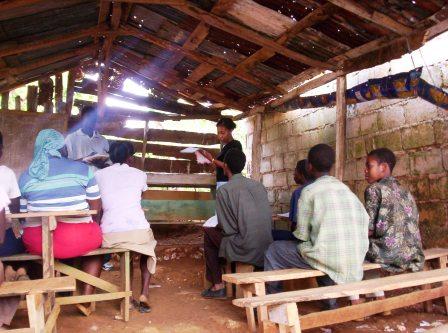
The photo that did not turn out well is the one I took of the other working center I visited. I’m sorry about that, because it’s striking. It’s a center that offers a basic literacy class, and all of its members are children, young teenagers who attend the literacy center because their families were not able to send them to school.
The site left me at once happy and very sad. It pleased me to know that I am part of a program that offers such children a chance to learn to read. It’s awful to realize that the minimal education that the center can offer them is taking the place of what should be a childhood spent in school.